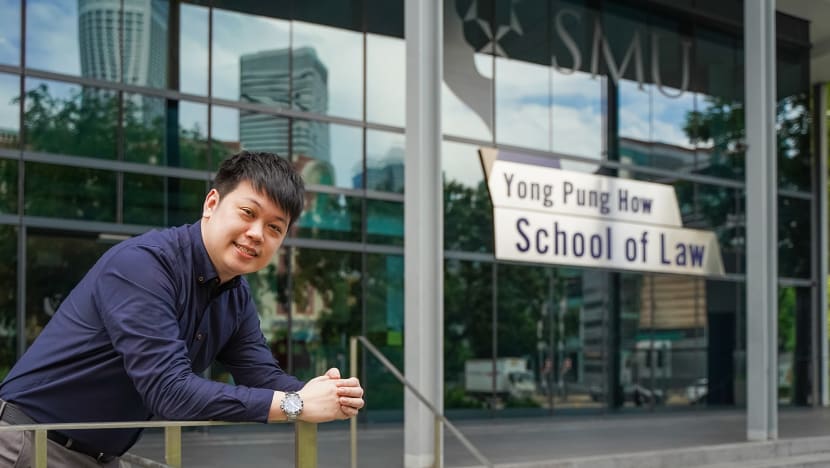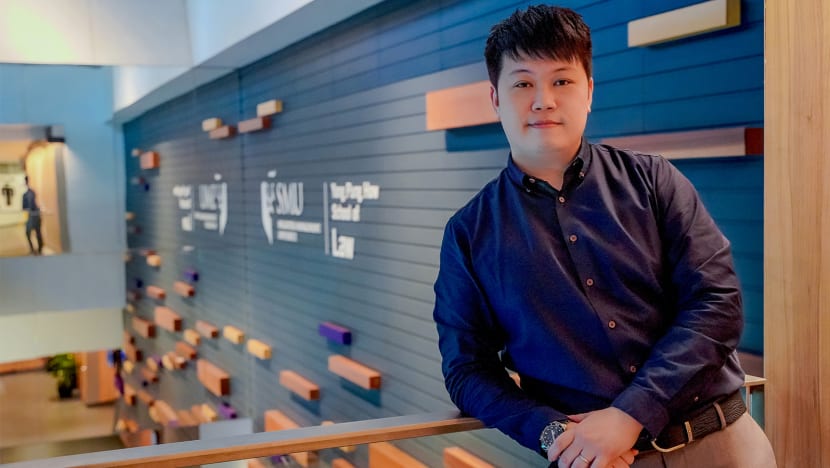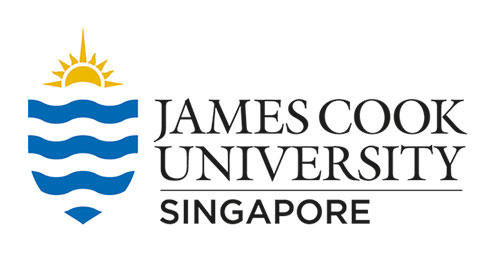Finding purpose through psychology: A journey from setback to success
Overcoming early academic challenges, Mr Nicholas Seet is now a PhD candidate at James Cook University, aspiring to improve the lives of students.

Mr Nicholas Seet aspires to become a professor to contribute to student-oriented pedagogy or to take on a significant role in student welfare administration. Photos: James Cook University

This audio is generated by an AI tool.
As a student in primary and secondary school, Mr Nicholas Seet struggled to understand his subject curricula.
Social difficulties compounded his challenges. He dropped out of school and attempted to pass his O-Levels privately but faced repeated failures. Buoyed by the support of his parents and later his wife, he completed a diploma in psychology after being admitted on a special-case basis. In 2019, he graduated with a globally recognised bachelor’s degree in psychology from James Cook University (JCU).
Getting to study psychology – a subject that he is passionate about – made all the difference in his academic performance, recalled Mr Seet. “My grades improved dramatically overnight,” he said. “From a hopeless, failing student – something many of my teachers had called me before – I became an academically successful student. I felt like I finally found my role and purpose in life.”
OPPORTUNITIES TO GROW ACADEMICALLY
Accepted into the Bachelor of Psychological Science programme at the Singapore campus of JCU in 2017, Mr Seet is currently a Doctor of Philosophy (PhD) candidate at the same institution.
He holds multiple key roles within the Higher Degrees by Research (HDR) community at JCU, while simultaneously maintaining a full-time job as a research associate at the Yong Pung How School of Law, Singapore Management University (SMU).
He was drawn to JCU for two key reasons: The Bachelor of Psychological Science’s curriculum and the programme’s recognition by the Australian Psychology Accreditation Council (APAC).
“I knew I wasn’t suited for the typical local curriculum. JCU’s offering of Australian-style education piqued my interest and gave me hope that I would enjoy my time in school. In addition, I knew that the APAC accreditation would give me an edge over others in the workplace,” shared Mr Seet.
Ranked among the top 2 per cent of universities in the world by the 2024 Times Higher Education World University Rankings, JCU also scored five stars in the 2024 Good Universities Guide in the categories of full-time employment, graduate starting salary, student teacher ratio and social equity. JCU Singapore students can choose to spend up to two semesters at the JCU Townsville and Cairns campuses in Australia via the Intercampus Exchange Program.
Engaged by the innovative teaching methods at JCU, such as games and activities designed to help students better understand the curricula, Mr Seet flourished academically. He was invited to join JCU’s EMAS Statistics (Research Methodology) and EMAS English (Academic Writing) programmes.
These positions meant becoming a peer tutor in both departments, a privilege not extended to many, providing academic support on a weekly or ad-hoc basis to other students. Helping fellow students came so naturally to Mr Seet that he found himself offering private tuition to his peers throughout his undergraduate years.
“One of my students, who used to barely pass his assignments but began scoring over 70 marks comfortably after being tutored, once told me proudly that he is now able to help his friends with what he learnt from me,” he recounted. “That was a very memorable moment, knowing that I made a positive difference in a student’s life.”
CONSTRUCTING HIS OWN CAREER PATH

Mr Seet’s two favourite undergraduate modules were social psychology, coordinated by Dr Nerina Caltabiano, and intercultural psychology, taught by Dr Teoh Ai Ni. His active participation in these classes established an academic bond that would serve him well after graduation, especially during the COVID-19 pandemic when jobs were difficult to secure.
Undaunted by the challenges, he decided that if he couldn’t find a job, he would create one. Recalling his own experiences, he developed a research proposal on teacher bullying – an often-overlooked topic in Asian countries, but one that leads to significant negative outcomes for students, he explained.
Said Mr Seet: “I approached Dr Teoh with my research proposal and together with Dr Caltabiano from JCU Australia, we successfully applied for joint funding to complete the proposed research study, which was later published in a top educational journal.”
In conceptualising his research proposal and later his PhD investigation into mother tongue language anxiety among primary school students in Singapore, Mr Seet drew on his undergraduate knowledge of psychological and sociological theories and frameworks.
“As most PhD topics are novel, conceptualisation is an integral part of the process of developing topics for investigation. The theories, models and literature we learn in the Bachelor of Psychological Science programme help to build our understanding of potential topics and to identify gaps for investigation,” he explained.
The joint study on teacher bullying was presented at the 14th Biennial Conference of the Asian Association of Social Psychology in Seoul, South Korea, raising awareness of the issue and opening doors to collaboration interests with university academics in Hong Kong, Japan and Singapore. It also played a key role in helping him secure his job as a research associate at a law school in Singapore.
“The study demonstrated my ability to qualitatively develop important literature-guided topics for any main topic,” explained Mr Seet. “This skill came in very handy during my interview when I was asked to propose new research questions or sub-studies to the main research project.”
In his current role at SMU, Mr Seet leads a research team in a project supported by an academic research grant from the Ministry of Education. The qualitative sub-study he proposed during his interview became a reality after he was offered the position. He collaborated with his principal investigator to secure additional funding to complement the findings of the main project and was given the opportunity to co-author a paper on qualitative findings with the principal investigator.
Initially planning to pursue a career as a professor after completing his doctoral studies, Mr Seet is now open to exploring broader roles in education as a result of his PhD experience.
“Through my roles in JCU’s PhD and HDR community, such as co-chairing a joint post-graduate conference and founding a post-graduate HDR mental health initiative, I realised that I have strong skill sets in project management that can be useful administratively as well,” he reflected.
“I aspire to become a professor to contribute to student-oriented pedagogy or to take on a significant role in student welfare administration. Either way, I plan to continue striving to improve the lives of students and continue my research in student-oriented educational topics of interest.”
James Cook University’s Bachelor of Psychological Science is accredited by the Australian Psychology Accreditation Council. Find out more about other psychology programmes offered at the Singapore campus of James Cook University.















